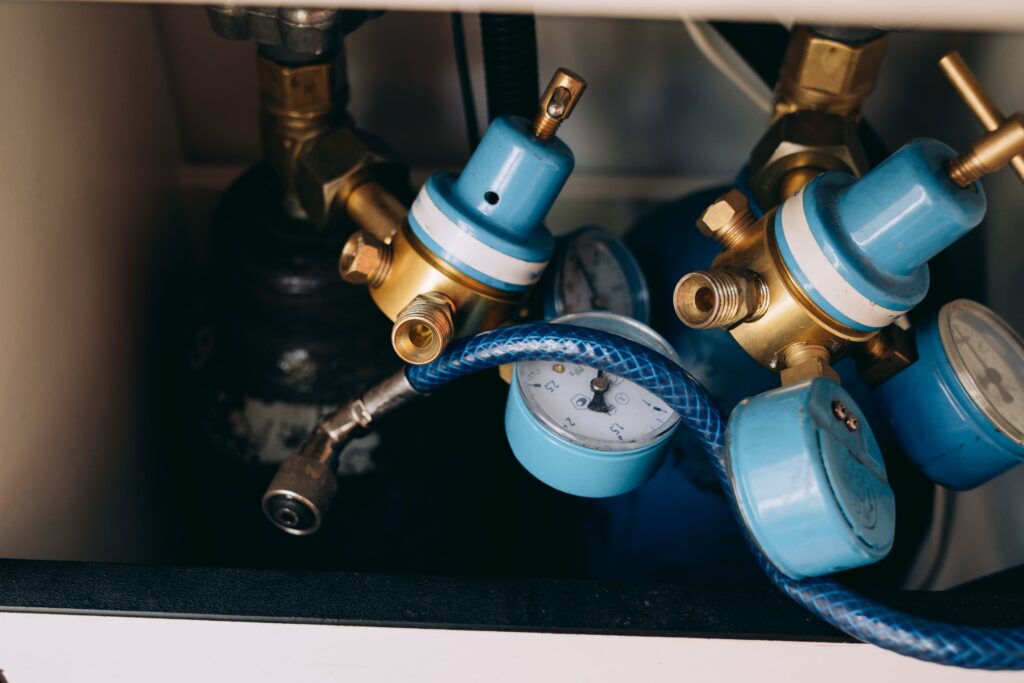
At some stage during your conveyancing process a standard query arises along the lines of “when was the current boiler installed and could an up to date gas service record be supplied prior to exchange?”.
Clients often wonder what interest the gas boiler is to a conveyancing lawyer, what the implications are and why conveyancers require the question to be answered.
It is important to ensure gas appliances work properly and are safe. Frequently, the news shows properties which have been devastated by explosions, fire and often irreparable damage. Whilst we rarely hear the full cause of this other than “gas explosion” we are reminded of the dangers that gas use can expose.
The Law
Going back to April 2005, it became a requirement for property owners to obtain a building regulation completion certificate/compliance certificate for the installation of any new gas appliances. This applies to a boiler, fire or new gas cooker. GasSafe deal with the registration of such completion certificates. Prior to 2010, the procedure was dealt with by Corgi.
Without obtaining the certificate at the point of installation, this may cause a seller issues in selling the property. A buyer’s conveyancer will be wary of proceeding without a certificate because it confirms to the solicitor that at the time of installation, the work met building regulations and was deemed safe. For a buyer, this provides comfort in the knowledge that the appliance was safely installed.
GasSafe also notify installations and certification to the local authority, this allows the council to be sure the appliance was safe at installation. If you do not have a compliance certificate of this type, this could result in enforcement action if the boiler becomes unsafe and requires the council’s intervention.
Servicing & Annual Inspections
Clearly, the issue of a building regulations completion certificate on installation does not confirm the boiler to be safe to use by the time completion of your purchase takes place. Often a seller will provide a recent servicing report. If not or the request is refused by the seller, you may ask that this be done at your cost prior to exchange. A service by a gas engineer annually and records provided confirming that all gas appliances in the property are working and safe to use gives comfort that the boiler is as safe as can be expected.
Documentation For The Boiler
Initially to keep the compliance certificate issued by GasSafe or Corgi is preferred but if you cannot find the certificate, a check needs to be made with the above two companies to see if one was ever issued. A duplicate may then be obtained by payment of a fee.
In the event that the boiler was installed after 2005 but no evidence can be found that building regulations were complied with, your solicitor can obtain an indemnity policy that will insure the house owner against enforcement action from the local authority.
This does not however, provide any assurance that the installation was safe and you may well be asked to provide an up-to-date gas service and safety record to confirm to your buyer that the appliance is safe to use.
If discussions are taking place in relation to indemnity insurance, it is vital that you do not make any approaches to the local authority or other third parties as this will prevent you being able to supply an indemnity policy. Leave the investigations and research regarding the policy to your solicitor to avoid tipping off the council or third parties that there is a potential problem and no building control is in place.
It is not a legal requirement to have your boiler or gas appliances serviced annually and as a seller you can refuse to provide this. However, to provide the report will provide your buyer with peace of mind that the appliances are indeed safe and offset further queries or concerns that will inevitably arise.
Are My Interests Protected?
During the conveyancing procedure you may well hear the phrase “let the buyer beware” or “caveat emptor”. This means that as a buyer, it is your responsibility to inspect the property to ensure it is both legally and structurally sound.
Your solicitor will make enquiries regarding the boiler and it is important that you notify your solicitor of any concerns you may have. If you are aware of other gas appliances, it would be best to mention these so that they can also be checked.
In the event the seller does not hold the building control compliance certificate for the appliances, your solicitor will advise you of this and discuss your next options which could include asking the seller to provide indemnity insurance as well as an up to date inspection report to ensure the appliances are safe and working.
Does This Cause A Delay?
There is not too much delay caused by the issues surrounding whether or not a boiler has building control approval. A draft indemnity policy can be obtained almost instantly but there are then the negotiations between solicitors to ensure that the seller agrees to pay for the policy and for the buyer’s solicitor to ensure it covers the buyer adequately. A policy of this type allows for payment of a one off premium. The policy can pass to each successive owner of the house. Most policies of this type last forever. The potential delay will be organising a contractor to come out to inspect and service the boiler to provide the inspection report.
If you have any concerns your first point of contact should always be your solicitor who will be able to help.




